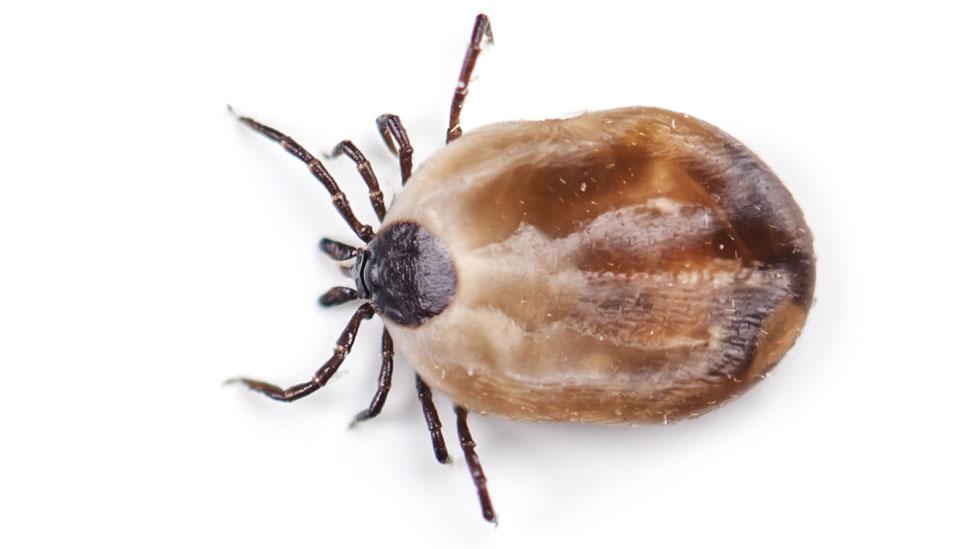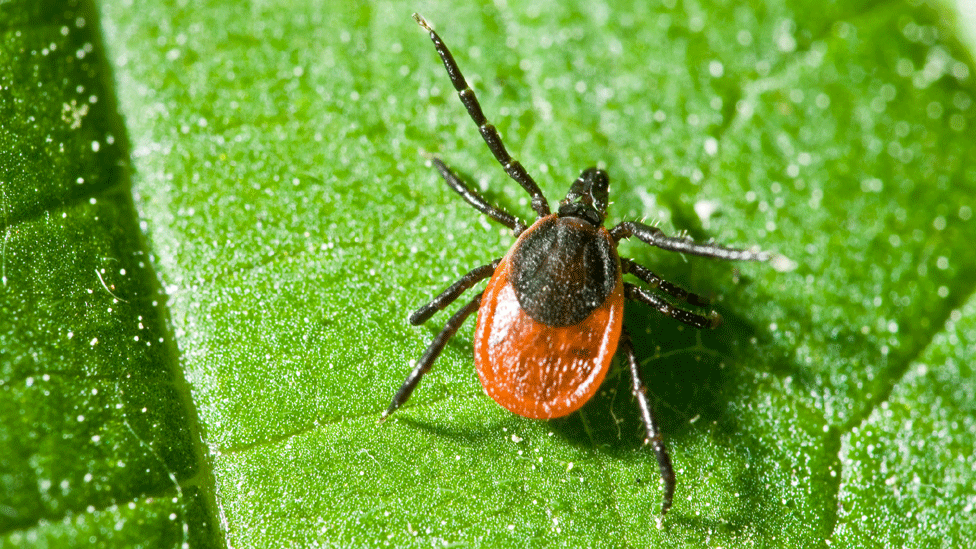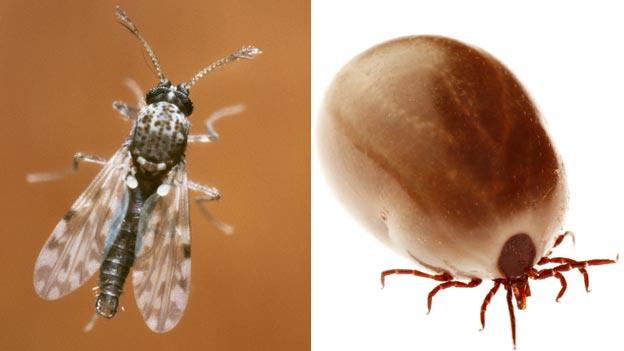Mountaineering council recommends 'days later' tick check
- Published

Untreated tick bites can result in neurological problems and joint pain months or years later
People returning from walks in the hills have been urged to check themselves for ticks over several days and not just the day of their trip.
Untreated tick bites can result in neurological problems and joint pain months or years later.
The Mountaineering Council of Scotland said the creatures could be found on a person's body days after a walk.
It said the cold winter and spring appeared to have not reduced numbers of the blood-sucking arthropods.
'Didn't escape'
Heather Morning, the council's mountain safety advisor, has already had some experience of ticks this year.
She said: "Last weekend we were climbing at Duntelchaig, near Loch Ness.
"At home later, we noticed several ticks on our feet and since then have found several latched onto our bodies even though we had checked ourselves when we got home.
"The dog didn't escape either. We have been removing ticks from her for several days now."
Long grass
The safety advisor said walkers could protect themselves better by tucking trousers into socks or wearing gaiters, and also by making thorough checks of their bodies once back home.
She added: "From experience, they seem to appear even a few days later. If you find one attached to you, remove with a tick hook. If in doubt, seek advice from your doctor."
Ticks are small arthropods related to spiders, mites and scorpions and Britain has a number of different species.
People are most likely to come across sheep ticks, which feed on mammals and birds, in open spaces with long grass or bracken.
- Published21 July 2015

- Published13 May 2015

- Published9 July 2013
